
Rotterdam is the second largest city and municipality in the Netherlands. It is in the province of South Holland, part of the North Sea mouth of the Rhine–Meuse–Scheldt delta, via the "New Meuse" inland shipping channel, dug to connect to the Meuse first, but now to the Rhine instead.
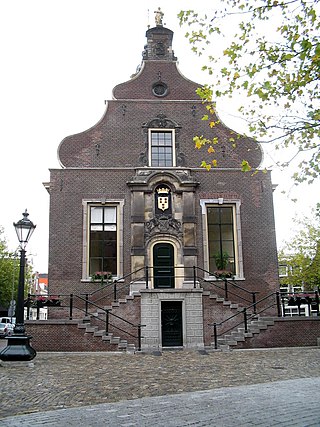
Schiedam is a city and municipality in the west of the Netherlands. It is located in the Rotterdam–The Hague metropolitan area, west of Rotterdam, east of Vlaardingen, and south of Delft. In the south the city is connected with the village of Pernis by the Beneluxtunnel.

Voorschoten is a village and municipality in the western Netherlands, in the province of South Holland. It is a smaller town in the Randstad, enclosed by the cities of Leiden, Wassenaar and The Hague. The municipality covers an area of 11.56 km2 (4.46 sq mi) of which 0.42 km2 (0.16 sq mi) is covered by water.

Nederlandse Spoorwegen is the principal passenger railway operator in the Netherlands. It is a Dutch state-owned company founded in 1938. The Dutch rail network is one of the busiest in the European Union, and the third busiest in the world after Switzerland and Japan.
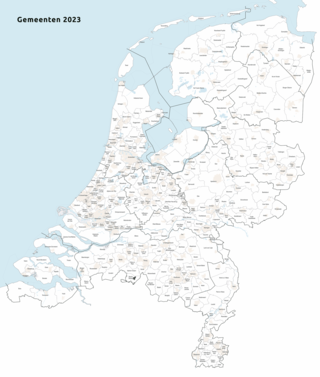
As of 1 January 2023, there are 342 municipalities and three special municipalities in the Netherlands. The latter is the status of three of the six island territories that make up the Dutch Caribbean. Municipalities are the second-level administrative division, or public bodies, in the Netherlands and are subdivisions of their respective provinces. Their duties are delegated to them by the central government and they are ruled by a municipal council that is elected every four years. Municipal mergers have reduced the total number of municipalities by two-thirds since the first official boundaries were created in the mid 19th century. Municipalities themselves are informally subdivided into districts and neighbourhoods for administrative and statistical purposes.

Litter consists of waste products that have been discarded incorrectly, without consent, at an unsuitable location. Litter can also be used as a verb; to litter means to drop and leave objects, often man-made, such as aluminum cans, paper cups, food wrappers, cardboard boxes or plastic bottles on the ground, and leave them there indefinitely or for other people to dispose of as opposed to disposing of them correctly.
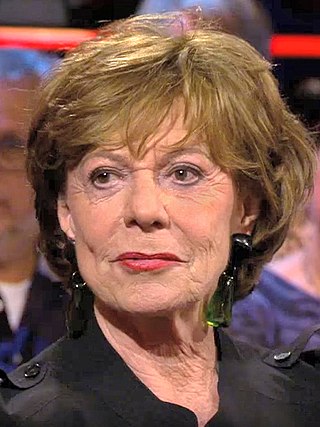
Neelie Kroes is a retired Dutch politician of the People's Party for Freedom and Democracy (VVD) and businessperson who served as European Commissioner from 22 November 2004 to 1 November 2014.
Municipal or urban engineering applies the tools of science, art and engineering in an urban environment.

A bicycle boulevard, sometimes referred to as a neighborhood greenway, neighborway, neighborhood bikeway or neighborhood byway is a type of bikeway composed of a low-speed street which has been "optimized" for bicycle traffic. Bicycle boulevards discourage cut-through motor-vehicle traffic but allow local motor-vehicle traffic. They are designed to give priority to bicyclists as through-going traffic. They are intended as a low-cost, politically popular way to create a connected network of streets with good bicyclist comfort and/or safety.
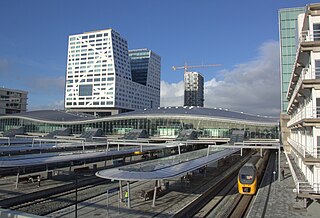
Utrecht Centraal, officially Station Utrecht Centraal, is the transit hub that integrates three bicycle parkings, two bus stations, two tram stops and the central railway station for the city of Utrecht in the province of Utrecht, Netherlands.
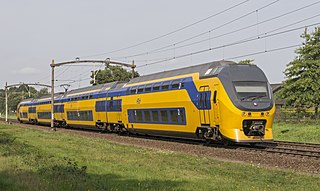
Rail transport in the Netherlands uses a dense railway network which connects nearly all major towns and cities. There are as many train stations as there are municipalities in the Netherlands. The network totals 3,223 route km (2,003 mi) on 6,830 kilometres (4,240 mi) of track; a line may run both ways, or two lines may run on major routes. Three-quarters of the lines have been electrified.

The Amsterdam Tram is a tram network in Amsterdam, Netherlands. It dates back to 1875 and since 1943 has been operated by municipal public transport operator Gemeentelijk Vervoerbedrijf (GVB), which also runs the Amsterdam Metro and the city bus and ferry services. Amsterdam has the largest tram network in the Netherlands and one of the largest in Europe.

Rijkswaterstaat, founded in 1798 as the Bureau voor den Waterstaat and formerly translated to Directorate General for Public Works and Water Management, is a Directorate-General of the Ministry of Infrastructure and Water Management of the Netherlands. Its role is the practical execution of the public works and water management, including the construction and maintenance of waterways and roads, and flood protection and prevention. The agency was also involved in the construction of big railway projects such as the Betuweroute and the HSL-Zuid.

Federal Public Service Mobility and Transport, is a Federal Public Service of Belgium.
A civil enforcement officer is a person employed to enforce parking, traffic and other restrictions and laws.

A bicycle parking station, or bicycle garage, is a building or structure designed for use as a bicycle parking facility. Such a facility can be as simple as a lockable bike cage or shed or as complex as a purpose-built multi-level building: the common purpose is that they provide secure bicycle parking. Bicycle parking stations also go by names such as bike stations, bicycle centers and cycle centers, among many others.

The Stadsgewestelijk Materieel or SGM was an electric multiple unit (EMU) train type that was operated by the Dutch railway company Nederlandse Spoorwegen. They were built from 1975 to 1983 by Talbot and retired from service between 2018 and 2021.
The main public transport in the Netherlands for longer distances is by train. Long-distance buses are limited to a few missing railway connections. Regional and local public transport is by bus, and in some cities by metro and tram. There are also ferries.
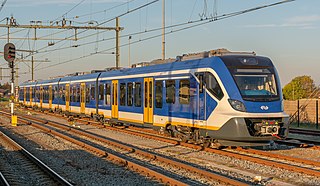
Sprinter New Generation or SNG: The Sprinter New Generation is an electrically driven type of trainset of the Dutch Railways or Nederlandse Spoorwegen. The trains are designed and built by the Spanish train builder Construcciones y Auxiliar de Ferrocarriles (CAF), who bases the trains on the Civity platform. The trains are primarily intended to replace older train equipment, but are also intended for the growth of the number of passengers on the Hoofdrailnet or main rail network.

Vivianne L.W.A. Heijnen is a Dutch politician of the Christian Democratic Appeal (CDA) party. She has been serving as the Minister for the Environment as part of the fourth Rutte cabinet since January 2022. Heijnen was previously head of the Brussels campus of her alma mater Maastricht University, and she was active in local politics in Maastricht as municipal councilor (2010–18) and alderwoman (2018–22).

















